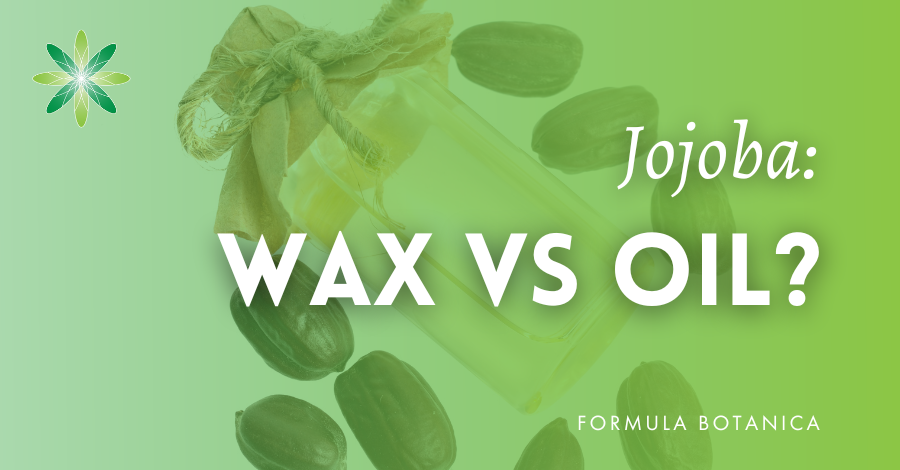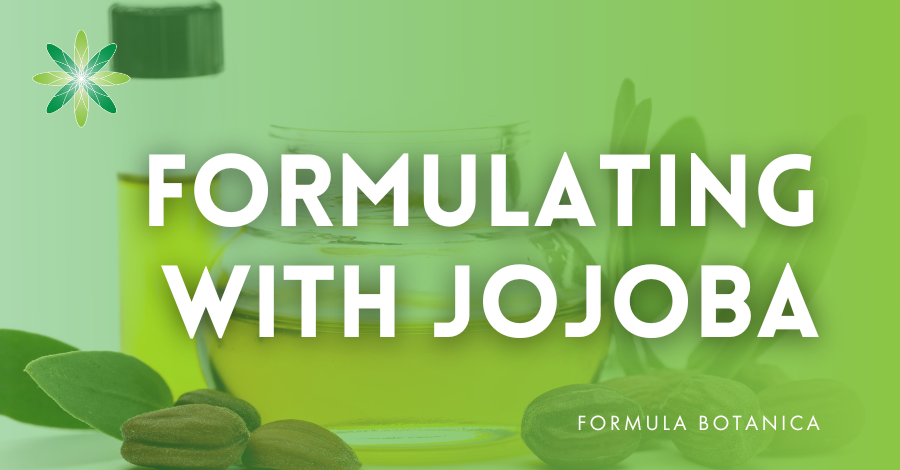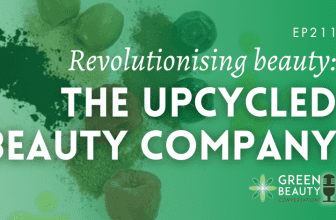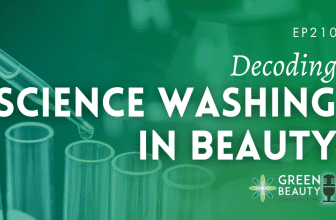
[ad_1]
When it comes to natural cosmetic formulation, one ingredient stands out for its exceptional versatility, stability, and remarkable skincare benefits: jojoba wax. While commonly referred to as an oil, jojoba is technically a liquid wax extracted from the seeds of the jojoba plant (Simmondsia chinensis). A hardy, shrubby tree, jojoba – pronounced “ho-ho-ba” – is native to the arid regions of North America (Arizona and California) and Mexico. Its oil has been valued for centuries for its numerous uses and remarkable properties.
Jojoba wax possesses a unique set of characteristics that make it a prized ingredient in natural cosmetic formulations. It is heat stable, meaning it can withstand high temperatures without losing its valuable properties. Unlike many other plant oils, jojoba wax is highly resistant to oxidation, which extends the shelf life of products and prevents rancidity. These qualities alone make it an invaluable asset for cosmetic formulators seeking to create long-lasting, stable, and high-quality formulations. However, beyond its stability, jojoba offers innumerable benefits for the skin and hair.
In this post, we delve deeper into jojoba wax, and uncover the secrets of this amazing ingredient that is so versatile and much loved by natural cosmetic formulators. Let’s start with the basics – just how should we refer to jojoba as a cosmetic ingredient?
Defining jojoba: wax vs oil

Jojoba wax is the raw material derived from jojoba seeds of which it comprises around 50 percent. The wax is typically cold-pressed or extracted using gentle methods to obtain the oil, which retains the majority of jojoba’s beneficial properties.
It has a unique chemical structure, characterised by a high concentration of esters and long-chain fatty alcohols (40- and 42-carbon chain length esters), along with less than 1% triglyceride content, and vitamin E, which makes up around 79% of its fat-soluble vitamin compounds (i). This profile varies according to the jojoba wax’s country of origin (ii).
Jojoba’s wax composition means it is semi-solid consistency at room temperature, resembling a soft wax rather than a typical liquid oil. The melting point of jojoba oil is around 10°C (50°F). This explains why we refer to jojoba as a liquid wax when at room temperature.
It is slightly viscous and a golden yellow colour with a weak nutty odour. However, refined jojoba has little or no odour and is almost colourless. As natural formulators, we tend to opt for the unrefined to ensure we don’t lose out on the oil’s natural, skin-beneficial compounds. Now, let’s take a look at these compounds in detail.
The extraordinary properties of jojoba oil

Heat Stability: Jojoba’s resistance to high temperatures
One of the remarkable properties of jojoba in cosmetic formulations is its exceptional heat stability. Unlike many plant oils, jojoba can withstand high temperatures without undergoing significant degradation or loss of its beneficial properties. This makes it an invaluable ingredient for formulators working with heat-intensive processes or products that may be exposed to elevated temperatures during storage or usage.
As formulators, we can take advantage of jojoba wax’s heat stability when creating products such as lip balms, lipsticks, and balms that require melting to pour into moulds. Due to its ability to maintain its structural integrity under heat, jojoba acts as a reliable base, ensuring the final product has greater ability to retain its desired performance.
Oxidation resistance: how jojoba oil minimises rancidity
Oxidation is a common concern in cosmetic formulations as it can lead to the deterioration of oils, resulting in an off-putting scent, discolouration, and reduced efficacy. However, jojoba wax, thanks to its natural composition rich in esters and long-chain fatty alcohols, possesses exceptional resistance to oxidation which sets it apart from many other botanical oils.
Its vitamin E compounds act as antioxidants, effectively scavenging free radicals and protecting the oil from oxidative damage. This unique property not only ensures the longevity of jojoba wax itself, but also helps preserve the stability and freshness of the entire formulation, reducing the need for additional antioxidants.
Long shelf life: the stability of jojoba in cosmetic formulations
This combination of heat stability and oxidation resistance contribute to jojoba wax as a useful ingredient to include in order to help extend the shelf life of cosmetics. Jojoba oil itself is said to be stable for 2-3 years, and it can be stable for far longer – even up to five years – if stored in an appropriate container away from heat and light.
By including jojoba, you can help maintain the integrity of more heat-sensitive and oxidation-prone ingredients in a formulation to extended its shelf life.
Jojoba’s skin compatibility and benefits
The composition of jojoba oil is very similar to that of our skin’s sebum, which is why this ingredient is a fantastic emollient and moisturiser, and ideal for skin and hair conditioning. Jojoba oil helps repair the skin lipid barrier, reducing transepidermal water loss and controlling sebum production. Its structural similarity to our sebum allows jojoba to mimic the skin’s natural moisture balance without creating a greasy or occlusive film. It works for all skin and hair types, and is especially useful for dry or acne-prone skin.
It also contains anti-inflammatory compounds that can help with various skin conditions and presents antimicrobial and antifungal activities. Its remarkable soothing properties make it an ideal ingredient for cosmetics aimed at sensitive, dry, or irritated skin. Jojoba’s gentle and non-irritating nature makes it suitable for even the most delicate skin types, providing relief and promoting a healthier skin barrier.
Despite being an oil-based ingredient, jojoba wax has the unique ability to regulate sebum production and balance oily skin. When applied topically, it signals to the skin that it has already produced enough sebum, preventing overproduction and the associated issues of greasiness and clogged pores. This property makes jojoba wax an excellent choice for individuals with oily or acne-prone skin. Jojoba oil helps gently unclog pores and remove grime from the skin and scalp making it is an excellent addition to cleansing products.
Jojoba’s antioxidant properties – natural tocopherols (vitamin E) – help to neutralise harmful molecules that can contribute to visible signs of premature skin ageing, including fine lines, wrinkles, and loss of elasticity. Vitamin E is known for its ability to nourish and protect the skin, preventing moisture loss and promoting skin elasticity.
Finally, jojoba also gives enough “slip” to ensure it’s a great choice for massage oils yet won’t be overly greasy to use.
Now, we’ll explore the various applications of jojoba oil in different cosmetic formulations to showcase its versatility in skin-, hair- and bodycare products.
Jojoba in different cosmetic formulations

The versatility of jojoba wax knows no bounds when it comes to including it in a spectrum of cosmetics. It really is an indispensable ingredient as our formulation examples below go to show.
Jojoba in skincare products
From cleansers and moisturisers to serums, masks and hair conditioners, jojoba is everywhere in natural cosmetics. Its widespread use is due to its exceptional compatibility with the skin ensuring it is non irritating; in fact, it can be used up to 100% of a formulation. Pure, unrefined jojoba has a place in any formulator’s botanical oil storecupboard.
In cleansers, it acts as a gentle emollient, effectively removing impurities while maintaining the skin’s natural moisture balance. When incorporated into moisturisers, jojoba oil leaves the skin soft, supple, and nourished. Its sebum-compatible, lightweight texture and non-greasy feel make it a favoured ingredient in serums which aim to deliver high-performance ingredients to the skin. In masks and scrubs, jojoba enhances texture and spreadability, improving their overall performance and ensuring a luxurious feel on their application. Try jojoba in these formulations:
How to make a face cream with peptides
How to make a solid facial cleansing bar
How to make a camellia cleansing oil – includes jojoba at 35%.
How to formulate a day face oil – includes jojoba at 16%
Jojoba in haircare products
Jojoba wax’s moisturising and conditioning properties make it a valuable addition to various haircare products. When used in shampoos, it helps to cleanse the scalp and hair while maintaining moisture, preventing dryness and promoting overall hair health. In conditioners, jojoba helps to detangle and soften the hair, leaving it smooth, manageable, and less prone to breakage. Its affinity to natural sebum makes it an excellent choice for scalp treatments and leave-in styling products, as it nourishes and protects both the scalp and hair strands.
How to make a solid hair conditioner
Formulate an antioxidant hair mask
Jojoba in lipcare products
Jojoba wax’s emollient and moisturising properties make it an excellent ingredient in lip balms, protecting the delicate lip skin from dryness. Here are three simple formulations to trial jojoba in; each working on different aspect of lip care:
How to make a berry-tinted lip balm
How to formulate a golden lip oil
How to make a whipped lip scrub
Jojoba in bodycare products
When it comes to bodycare products, jojoba offers a range of benefits for the skin. In lotions, it leaves the skin soft and smooth without a greasy residue. Jojoba’s stability and resistance to oxidation make it an ideal ingredient in body butters, ensuring they remain fresh and effective over time. In addition, its soothing and nourishing properties make jojoba an excellent choice for balms and salves, addressing dryness, chapped skin, and providing relief to irritated areas. We’ve chosen just a small, representative sample of bodycare formulations on this site that include jojoba oil:
How to make a simple hydrating body lotion
Your first botanical formulation: a simple body butter – includes jojoba at 20%.
How to formulate an exfoliating body polish
How to make a brightening body serum
Conclusion: jojoba in cosmetic formulations
Whether formulating skincare, haircare, makeup, or bodycare products, jojoba wax is almost unrivalled for its versatility and the myriad possibilities it presents both as a functional, foundation oil/wax as well as a high-performance ingredient. If you are new to natural cosmetic formulation, then jojoba is one of the first oils to buy for your basic storecupboard. If you are a more advanced formulator, don’t be tempted to overlook jojoba as you explore more exciting or trending botanical oils. It is time to embrace the extraordinary versatility of jojoba and unlock it potential when you formulate innovative and effective natural organic cosmetics for both skin and hair.
References and further reading
(i) Heba A. Gad, et al; (2021): Jojoba Oil: An Updated Comprehensive Review on Chemistry, Pharmaceutical Uses, and Toxicity.
(ii) Mohammed Hassan El-Mallah 1 [and] Safinaz Mohammed El-Shami, (2009): Investigation of liquid wax components of Egyptian jojoba seeds.
Nader Pazyar, et al; (2013): Jojoba in dermatology: A succinct review.
FREE FOUNDATION COURSE
How to become an
Organic Skincare Formulator
FREE TRAINING
How to become an
Organic Skincare Entrepreneur
Join over 100,000 other Formulators
FREE TRAINING
How to become an
Organic Skincare Entrepreneur
Join over 100,000 other Formulators
Leave us a comment

Liz is Formula Botanica’s Content Coordinator and joined our team in August 2020. Liz worked as a professional blogger, journalist and site developer for many years and was also part of the Formula Botanica student community. Read more about the Formula Botanica Team.
[ad_2]
Source link





